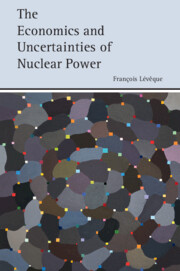Book contents
- Frontmatter
- Contents
- List of Abbreviations
- Introduction
- Part I Estimating the costs of nuclear power
- Part II The risk of a major nuclear accident
- Part III Safety regulation
- Part IV National policies and international governance
- Ten Adopting nuclear power
- Eleven Nuclear exit
- Twelve Supranational governance
- Thirteen International governance to combat proliferation
- Conclusion
- Notes
- Index
Conclusion
Published online by Cambridge University Press: 05 January 2015
- Frontmatter
- Contents
- List of Abbreviations
- Introduction
- Part I Estimating the costs of nuclear power
- Part II The risk of a major nuclear accident
- Part III Safety regulation
- Part IV National policies and international governance
- Ten Adopting nuclear power
- Eleven Nuclear exit
- Twelve Supranational governance
- Thirteen International governance to combat proliferation
- Conclusion
- Notes
- Index
Summary
Let us summarize the main points in this book.
With respect to costs, we have seen why the idea of a single, universally valid cost for nuclear power is misleading. Not because figures can be manipulated or assessments influenced by specific interests, but because there is no such thing as the true cost. Nuclear costs depend on the options available to economic decision-makers, public or private, and on a range of factors subject to considerable future uncertainty. So it does not cost the same amount to build a new plant in Finland, China or the United States.
The curse of rising costs has dogged nuclear technology from the outset, particularly in the US. Far from falling as more plants have been built, costs have soared, making new nuclear even more expensive. If there is no change in the immediate future, particularly if the price of carbon stays low, the competitiveness of nuclear power compared with other electricity-generating technologies will vanish. The outcome of any decision by a generating company to invest in the construction of a new nuclear power plant, or by a government advocating such a project, remains uncertain.
Regarding risk, we have noted and explained the divergence between expert calculations of the probability of a nuclear accident and the public perception of such a disaster.
- Type
- Chapter
- Information
- The Economics and Uncertainties of Nuclear Power , pp. 296 - 301Publisher: Cambridge University PressPrint publication year: 2014



